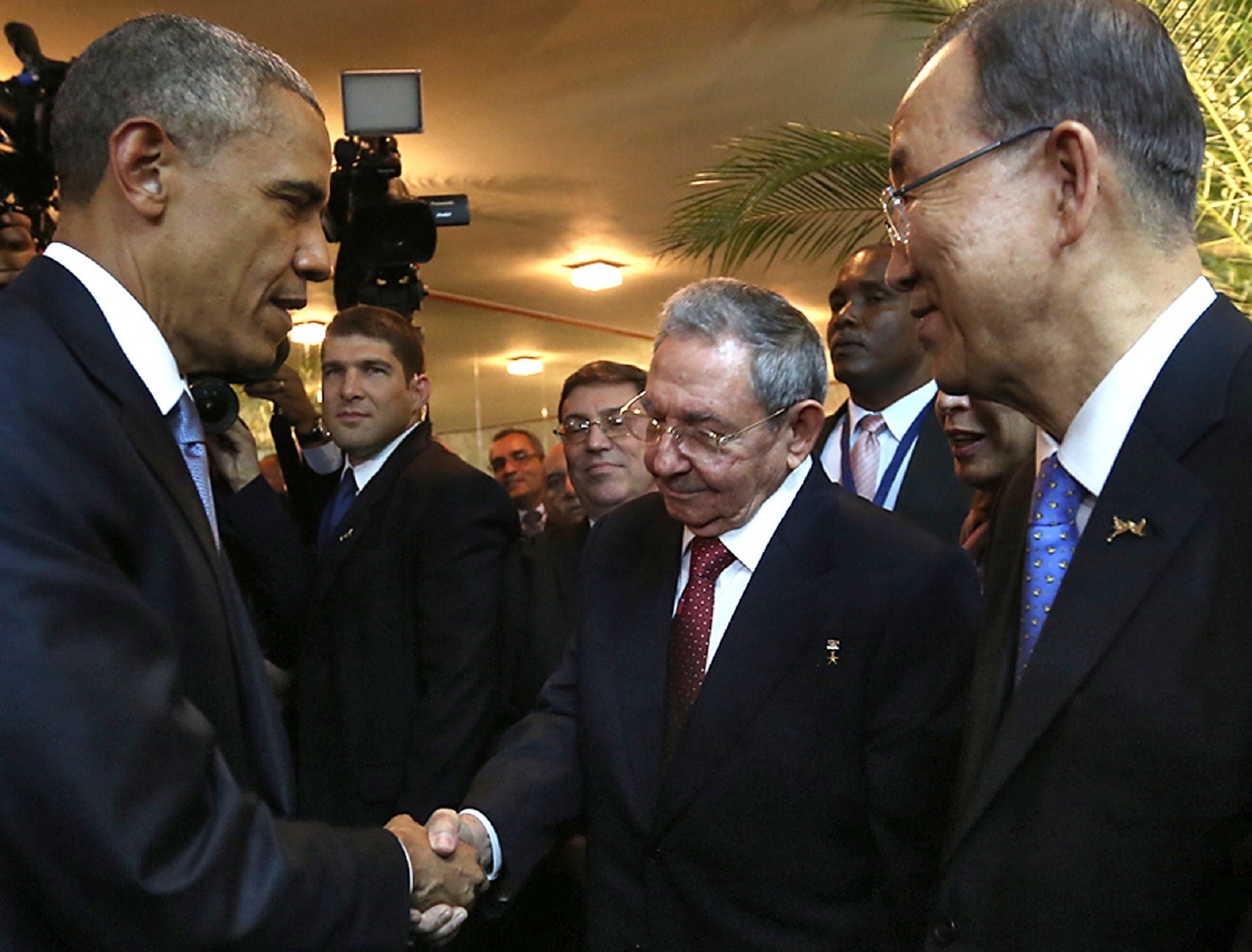We should give credit to Obama for bringing an end to America's foreign wars
We’ve seen a transition to a new, more enlightened way of engaging with abroad


This week the US authorities approved licences for a clutch of ferry services to operate between Florida and Cuba, restoring a link that has been severed for more than 50 years. The announcement came hard on the heels of news that the airline, JetBlue, would start direct flights from New York to Havana from July.
These are the first tangible benefits of a rapprochement between the US and Cuba which should lead to the resumption of full diplomatic relations. There is the potential here to change the diplomatic and commercial climate not just between the US and Cuba, but across the region and much further afield. It is nothing less than a revolution, and it is happening on Barack Obama’s watch.
The prevailing view thus far is that Obama’s presidency has been a colossal disappointment. If he leaves anything positive, the consensus goes, it will be in the domestic arena. It will be his success – success, after all, where Hillary Clinton failed – in persuading a reluctant Congress to extend health cover to millions of the country’s uninsured. Over and above this, it will be the very fact of his having been the country’s first black American President – though how far the effect has percolated through US society must be called into question after the violent protests in Fergusson and Baltimore.
On foreign policy, the consensus is even more negative, and not just inside the United States. Many Europeans of an Atlanticist disposition feel that Obama has not lived up to their hopes and his own aspirations. They do not – quite – share the fury of right-wing Republicans, who see him as a passive appeaser who has betrayed US interests and failed to use the military power at his disposal, but they would concur that Obama has stood aloof, dithering, while the greater Middle East and Ukraine burned, and China powered ahead unchallenged.
But has Barack Obama really compromised US power? Has his foreign policy been a failure? Or has he, if you consider his presidency over its six years so far, rather used his office in a more sophisticated and perhaps more productive way?
If you look more closely at where and how Obama has acted (and not), it is possible to discern an approach that could stand his successor – whoever it is – in good stead. First, Obama honoured his election promises to extricate the US from Iraq and to concentrate on Afghanistan with a view to ending US military intervention there.
The disorder left behind in both countries is not of his making, and it is not at all evident that prolonging US military involvement would have prevented either the advance of Islamic State in Iraq or the sporadic return of the Taliban in Afghanistan. The two withdrawals were accomplished with minimal loss of US – and allied – lives, and – from Afghanistan – with Russian help. As a result, the US is for the first time in decades not involved in any military action on the ground anywhere in the world. As long as this lasts, the US can no longer be seen as a land that regards military power as the force of first resort and tries, clumsily, to impose the American way.

Yes, the US under Obama can be said to have retreated. It has left Europe pretty much to its own devices, with the exception of some ill-judged meddling in Ukraine, courtesy of Victoria Nuland and Samantha Power. It “led from behind” in Libya – now judged as the mishandled UK-French intervention it always was. And Obama followed the UK Parliament in declining to intervene in Syria – a non-move condemned by the US right as a signal of weakness that left a vacuum for Islamic State, but was more likely a blessing in disguise.
Against this, Obama signed off on the order that led to the death of Osama bin Laden (and arguably sealed the decline of al-Qa’ida). He has presided over a huge increase in the use of lethal drones – which will be seen, like it or not and despite costly mistakes, as a form of warfare for the future. And he has authorised limited intervention, from the air, against Islamic State, with the back-up of an Arab alliance.
Obama has failed – despite the best efforts of his second-term Secretary of State, John Kerry – to clinch a peace settlement between Israel and the Palestinians. But the upheavals under way in the greater Middle East meant perhaps that the time was not propitious, as the whole regional dynamic is in flux. Not embroiling the United States in such big and shifting conflicts may come to be seen as the wiser course.
As with his overtures to Cuba, however – initiated with the help of the Vatican – Obama has, even here, identified a key to the defence of US interests and longer-term regional stability, and pursued it. If the preliminary nuclear agreement is finalised and US relations with Iran are normalised, this at once removes a dispute that hobbled the US in the wider region and festered on long after it benefited anyone. Again, as with Cuba, Obama had the vision, the persistence and the power, which he has used in a constructive, rather than coercive, way.
These are just snatches of a new sort of foreign policy, which relies on regional knowledge, on an appreciation of what can and cannot be done, on a readiness to seize the advantageous moment, and the limited, and rarely unilateral, use of force. It is a foreign policy not afraid to wait and see.
I learned recently of an exercise at a London think-tank, where British foreign affairs experts were asked to send a message to President Obama. Every participant, I was told, advised him to be more assertive, to be less shy about using US military power, and to take back a global role. No one dissented.
Such is the enduring strength of traditional ideas about the US, the configuration of the world, and the exercise of power. With hindsight, Obama’s foreign policy could well be seen as marking the transition to a new, more enlightened way of engaging with abroad. Perhaps the reason it is being so fiercely criticised now is that it is being judged by the hidebound expectations of the past.


Join our commenting forum
Join thought-provoking conversations, follow other Independent readers and see their replies